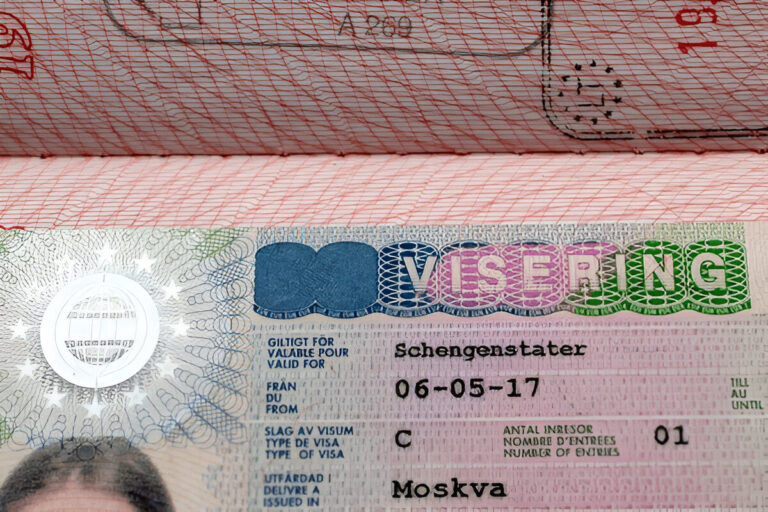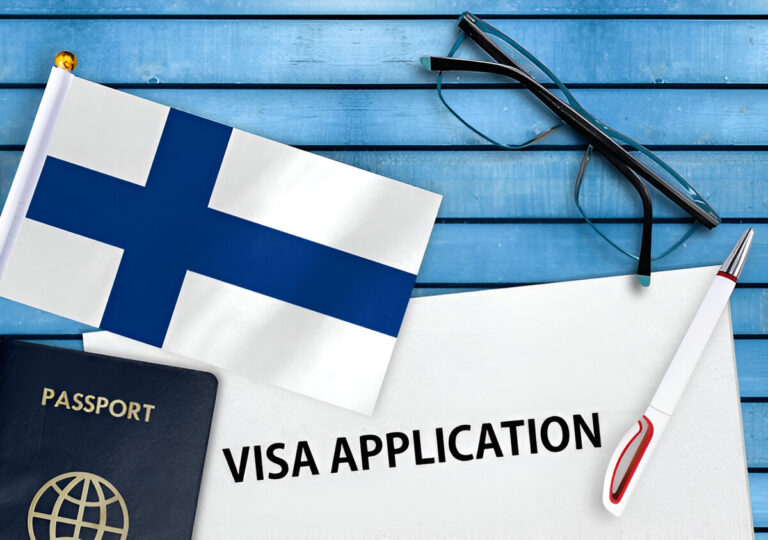France Study Visa for Immigrants – Visa Sponsorship in France
If you dream of studying in one of the most culturally rich and academically advanced countries in the world, France is an excellent destination. With world-class universities, vibrant student life, and countless opportunities, France attracts students from all corners of the globe.
However, to make this dream a reality, you’ll need a France study visa. This comprehensive guide will walk you through the steps, requirements, and opportunities for visa sponsorship in France.
Why Study in France?
France is home to some of the world’s top universities and offers a unique blend of high-quality education, affordability, and cultural immersion. Here are a few reasons why international students choose France:
- World-Class Education: France boasts top-ranked universities like Sorbonne University, École Normale Supérieure, and HEC Paris. These institutions provide diverse programs in arts, sciences, engineering, and business, ensuring students find courses aligned with their career goals.
- Affordable Tuition Fees: Compared to other popular study destinations, tuition fees in France are relatively low, especially for public universities. Undergraduate programs can cost as little as €170 per year, while private institutions may charge higher fees.
- Opportunities for Work and Immigration: Studying in France can be a stepping stone for long-term career opportunities, as the country provides pathways for post-study work and permanent residency. Many programs also integrate internships to give students hands-on experience.
- Rich Cultural Experience: From art and architecture to food and fashion, France offers an unparalleled cultural experience for students. Cities like Paris, Lyon, and Marseille are hubs of history, entertainment, and networking opportunities.
- Global Networking: Studying in France connects you with a diverse international student body and alumni network, opening doors to global career prospects.
Types of Study Visas in France
France offers different types of visas based on the duration and purpose of your stay. Here are the main categories:
- Short-Stay Visa (Visa de court séjour pour études):
- For courses lasting less than 3 months.
- Ideal for language programs or short-term courses.
- Does not allow you to work during your stay.
- Long-Stay Visa (Visa de long séjour – VLS-TS):
- Required for programs lasting more than 3 months.
- Includes the “student visa” category (Visa étudiant).
- Allows students to work up to 964 hours per year (approximately 20 hours per week).
- Provides eligibility for renewal and possible transition to work visas post-graduation.
- Temporary Long-Stay Visa (Visa de long séjour temporaire):
- For courses lasting 3 to 6 months.
- Does not allow renewal or conversion to another type of visa.
- Suitable for exchange programs and specific academic collaborations.
- Competencies and Talents Visa:
- For highly skilled individuals, often tied to specific academic or research projects.
- Frequently used for doctoral students, researchers, and post-doctoral fellows.
Top Universities in France for Immigrants
France is home to globally renowned institutions that cater to international students. Here are some of the top universities:
- Sorbonne University (Paris): Known for arts, humanities, and sciences.
- École Normale Supérieure (Paris): Specializes in research and teaching excellence.
- HEC Paris: A world leader in business and management studies.
- Sciences Po (Paris): Renowned for political science and international relations.
- INSEAD: A top choice for MBA programs and business studies.
- University of Strasbourg: Offers a wide range of programs and is a hub for research.
- Aix-Marseille University: Known for its diverse programs and vibrant student life.
- University of Lyon: Focuses on science, engineering, and humanities.
Jobs You Can Do While Studying in France
International students in France have several job opportunities to support themselves. Here are some options:
- Teaching or Tutoring:
- Teach English or your native language to French students. Language schools and private tutoring are common.
- Retail Jobs:
- Work in stores, supermarkets, or boutiques. These roles often have flexible hours.
- Hospitality Industry:
- Jobs in restaurants, cafes, and hotels are readily available, especially in tourist hubs.
- Freelancing:
- If you have skills in graphic design, writing, or programming, freelancing is a great option.
- Campus Jobs:
- Universities often hire students for administrative support, library assistance, or research projects.
- Delivery Services:
- Companies like Uber Eats or Deliveroo offer flexible part-time roles.
Steps to Apply for a France Study Visa
- Choose a Program and Get Accepted:
- Research and apply to a recognized French institution through the Campus France platform. Ensure the program aligns with your academic and professional goals.
- Obtain an acceptance letter (lettre d’acceptation) from the institution, which is mandatory for the visa application.
- Prepare Your Documents:
- Completed visa application form.
- Passport valid for at least three months beyond your planned stay.
- Proof of enrollment in a French institution.
- Proof of financial means, demonstrating access to at least €615 per month for living expenses.
- Health insurance coverage valid in France (€30,000 minimum).
- Proof of accommodation in France, such as a rental agreement or letter from a host.
- Recent passport-sized photographs (meeting French visa photo specifications).
- Register on Campus France:
- Create a profile on the Campus France platform, upload your documents, and pay the administrative fees. This step is essential for obtaining a pre-consular interview.
- Submit Your Application:
- Schedule an appointment at your nearest French consulate or visa application center. Prepare for an interview where you will discuss your study plans and intentions.
- Submit all required documents during the appointment.
- Pay the Visa Fee:
- The fee for a long-stay study visa is typically between €50 and €99, depending on your nationality. Ensure you keep the receipt as proof of payment.
- Track Your Application:
- Use the tracking system provided by the consulate or visa application center. Processing times can vary from 15 to 60 days, so apply early.
Visa Sponsorship in France
Visa sponsorship can make the application process easier, especially for students who may not meet all financial requirements. Here are key sponsorship options:
- University Sponsorship:
- Some universities offer financial aid or scholarships that cover tuition and living expenses. Examples include the Eiffel Excellence Scholarship and Émile Boutmy Scholarship. These scholarships often provide additional visa support and assistance.
- Government Scholarships:
- The French government offers programs like Campus France’s Charpak Scholarship or Erasmus+ for European Union students. These scholarships often come with visa support and monthly stipends.
- Employer Sponsorship:
- If you’re pursuing a work-study program or apprenticeship, your employer may sponsor your visa and provide financial support for your stay.
- Family Sponsorship:
- If you have family members legally residing in France, they can provide a letter of sponsorship and financial backing for your visa application.
- NGO and Private Organization Support:
- Some organizations assist students with financial aid, covering tuition fees, and helping with visa sponsorship. Examples include philanthropic foundations and educational NGOs.
Financial Requirements for France Study Visa
Proof of financial stability is a critical component of your visa application. Here’s what you need to demonstrate:
- Monthly Income or Savings:
- A minimum of €615 per month (approximately €7,380 per year) to cover living expenses.
- Accepted Financial Proofs:
- Bank statements showing sufficient funds.
- Scholarship award letters detailing financial coverage.
- Proof of sponsorship from family, employers, or organizations.
- Additional Costs:
- Accommodation costs vary depending on the city, averaging €200-€800 per month.
- Health insurance (€30-70 per month) and other personal expenses must also be accounted for.
Working While Studying in France
A long-stay study visa allows you to work part-time while pursuing your education. Here are the rules:
- Working Hours:
- Students are allowed to work up to 964 hours per year (approximately 20 hours per week).
- Internships:
- Internships related to your field of study may not count toward the 20-hour limit. These provide valuable work experience and networking opportunities.
- Post-Study Work Opportunities:
- After graduation, students may apply for a Temporary Resident Permit (APS), allowing them to stay in France for up to 2 years while seeking employment.
- French Language Skills:
- Proficiency in French can significantly increase your employability and enhance your chances of finding part-time work or internships.
Tips for a Successful Visa Application
- Start Early:
- Begin the application process at least 3 months before your intended travel date to avoid last-minute delays.
- Be Thorough:
- Double-check that all documents are complete, accurate, and up-to-date. Missing or incorrect documentation can lead to delays or rejections.
- Highlight Your Intentions:
- Clearly explain your study and career goals during the visa interview. Show how your chosen program aligns with your aspirations.
- Leverage Campus France:
- Use this platform to simplify the process and access guidance for your application.
- Seek Guidance:
- Consult with alumni or current international students in France for insights and tips on the application process.
Conclusion
Obtaining a France study visa can seem daunting, but with the right preparation and understanding of the process, you can navigate it successfully. Visa sponsorship options further ease the process, making studying in France more accessible to international students. As you embark on this journey, remember that France offers not just an education but a life-changing experience filled with cultural, academic, and personal growth opportunities.





